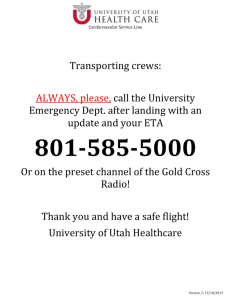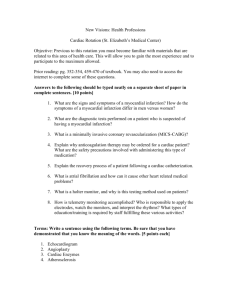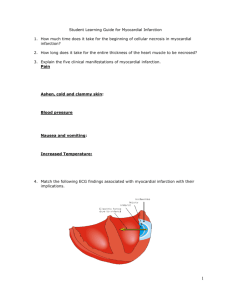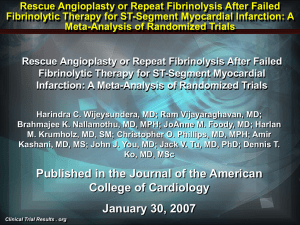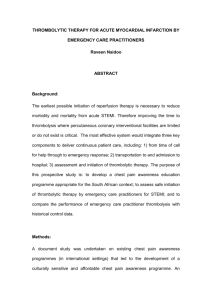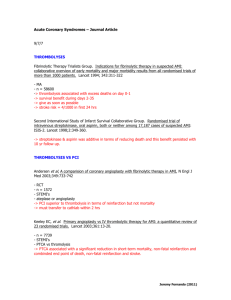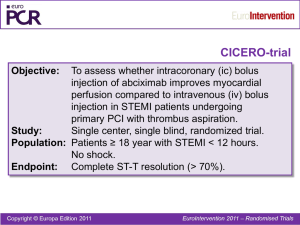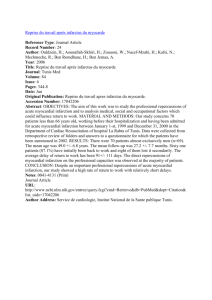routine angioplasty after fibrinolytic therapy for st
advertisement
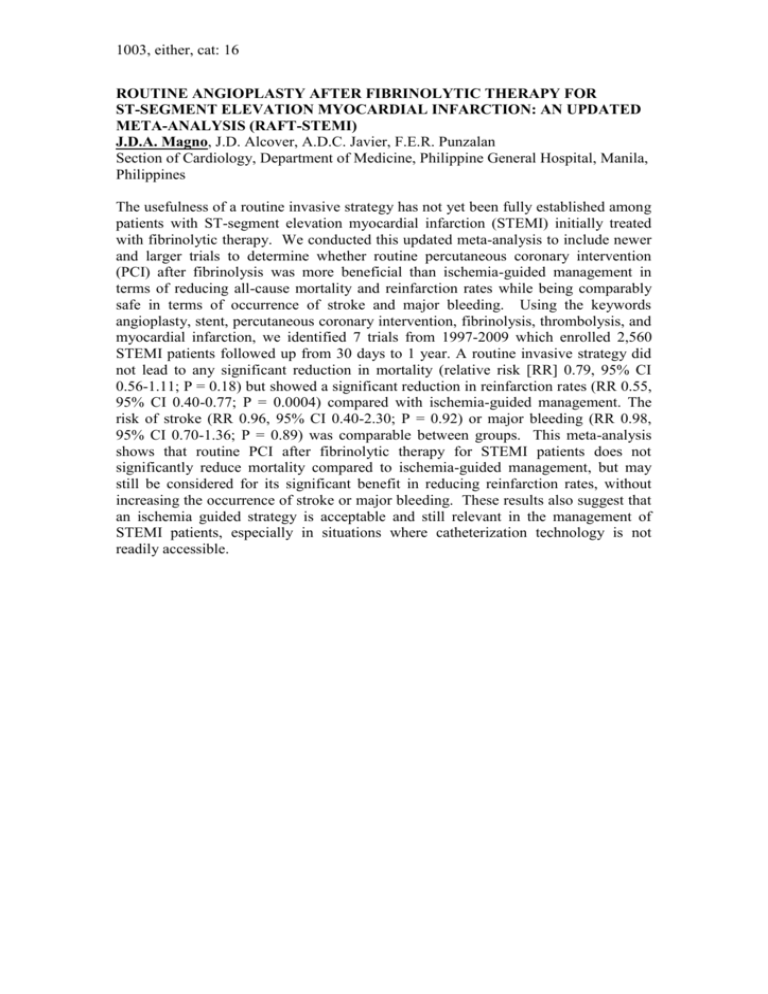
1003, either, cat: 16 ROUTINE ANGIOPLASTY AFTER FIBRINOLYTIC THERAPY FOR ST-SEGMENT ELEVATION MYOCARDIAL INFARCTION: AN UPDATED META-ANALYSIS (RAFT-STEMI) J.D.A. Magno, J.D. Alcover, A.D.C. Javier, F.E.R. Punzalan Section of Cardiology, Department of Medicine, Philippine General Hospital, Manila, Philippines The usefulness of a routine invasive strategy has not yet been fully established among patients with ST-segment elevation myocardial infarction (STEMI) initially treated with fibrinolytic therapy. We conducted this updated meta-analysis to include newer and larger trials to determine whether routine percutaneous coronary intervention (PCI) after fibrinolysis was more beneficial than ischemia-guided management in terms of reducing all-cause mortality and reinfarction rates while being comparably safe in terms of occurrence of stroke and major bleeding. Using the keywords angioplasty, stent, percutaneous coronary intervention, fibrinolysis, thrombolysis, and myocardial infarction, we identified 7 trials from 1997-2009 which enrolled 2,560 STEMI patients followed up from 30 days to 1 year. A routine invasive strategy did not lead to any significant reduction in mortality (relative risk [RR] 0.79, 95% CI 0.56-1.11; P = 0.18) but showed a significant reduction in reinfarction rates (RR 0.55, 95% CI 0.40-0.77; P = 0.0004) compared with ischemia-guided management. The risk of stroke (RR 0.96, 95% CI 0.40-2.30; P = 0.92) or major bleeding (RR 0.98, 95% CI 0.70-1.36; P = 0.89) was comparable between groups. This meta-analysis shows that routine PCI after fibrinolytic therapy for STEMI patients does not significantly reduce mortality compared to ischemia-guided management, but may still be considered for its significant benefit in reducing reinfarction rates, without increasing the occurrence of stroke or major bleeding. These results also suggest that an ischemia guided strategy is acceptable and still relevant in the management of STEMI patients, especially in situations where catheterization technology is not readily accessible.
